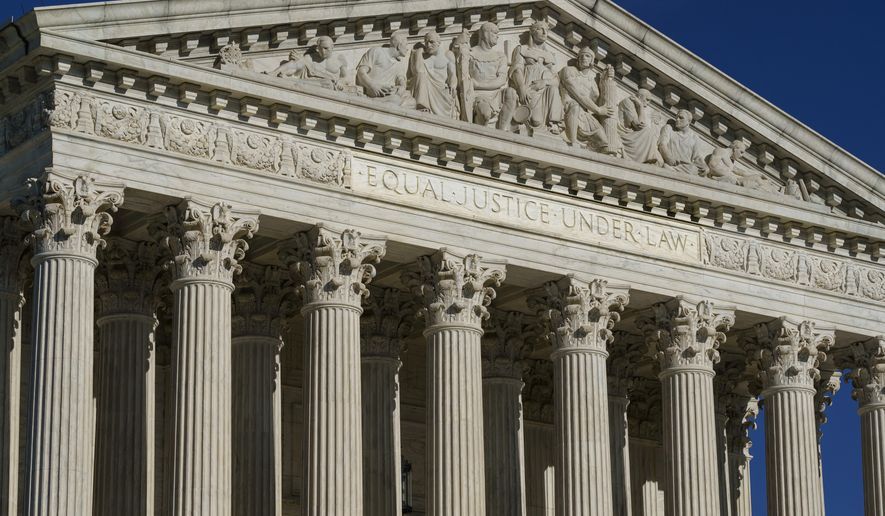The Supreme Court agreed to hear a case brought by Texas Sen. Ted Cruz over federal campaign finance laws concerning candidates’ personal loans to their own campaigns.
Earlier this year, the Republican lawmaker who argued many times before the high court before his election, won his federal lawsuit in lower court against the Federal Elections Commission, striking down an FEC limit on the amount of money a campaign can repay to a candidate who makes a personal loan to his election effort.
But the Justice Department took the lawsuit to the high court, and on Thursday the justices issued an order agreeing to hear the case.
Mr. Cruz initially filed the lawsuit after the $250,000 cap prevented him from receiving a full repayment for his $260,000 loan to his 2018 reelection campaign. He challenged Section 304 of the Bipartisan Campaign Reform Act of 2002 that banned candidates from repaying personal loans of more than $250,000 from post-election contributions out of their campaign.
After Mr. Cruz won reelection, his campaign paid back its debts, but Mr. Cruz only got $250,000 due to the cap.
He sued to get the $10,000 balance and for the court to rule Section 304 unconstitutional, arguing that the campaign finance limit violated the First Amendment.
SEE ALSO: Supreme Court to hear case over Boston’s denial of flying a Christian flag
The FEC argued the limit doesn’t place an undue burden on free speech and is aimed at combating corruption.
The Justice Department declined to comment on the high court granting review of the case.
Meanwhile, a spokesperson for Mr. Cruz said it’s “great news.”
“Existing FEC rules benefit incumbent politicians and the super wealthy by making it harder for challengers to run for office. We’re confident the Supreme Court will again rule in favor of the First Amendment and free speech,” the spokesperson said.
• Alex Swoyer can be reached at aswoyer@washingtontimes.com.




Please read our comment policy before commenting.